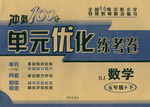题目内容
One day at the end of the class, a wise teacher told each of her students to 1 a plastic bag and a bag of potatoes to school.
The next day she told her students: “From today on, for every person you don't like in your lives, you can choose a potato, write the person's name and the date 2 it and then put it in the plastic bag.” Day after day, some of the students' bags were very 3 . They were then told to carry this bag with them everywhere they went for a week. They would put it inside their quilts 4 , on the seats when sitting in a car or on a bus , and next to their desks at school. The days carrying the bag around with them 5 students get to know what a weight they were carrying in their minds. They had to pay attention to it all the time 6 they wouldn't forget it. As time passed by, the potatoes went bad and 7 nasty(恶心). They all tired to get rid of them.
Too often we think of tolerance(宽容)as a gift to 8 people, and it clearly is for ourselves! If we choose to keep our sadness and hatred(仇恨)in our 9 , we will have to
carry them around all our lives.
Do you think you have got 10 from the wise teacher and what she asked her students
to do?
1. A. take B. bring C. put D. show
2. A. in B. at C. on D. with
3. A. heave B. strong C. light D. big
4. A. in the morning B. in the afternoon C. during the day D. at night
5. A. kept B. made C. asked D. allowed
6. A. as soon as B. since C. so that D. until
7. A. sounded B. tasted C. smelt D. felt
8. A. another B. other C. the other D. others
9.A. hands B. eyes C. stomachs D. hearts
10. A. anything B. nothing C. somebody D. Anybody
1.B
2.C
3.A
4.D
5.B
6.C
7.C
8.B
9.D
10.A
【解析】
【主旨大意】本篇短文通过讲述一个有智慧的老师叫学生把生活中不喜欢的人名写在马铃薯上,日积月累,马铃薯变多了,且变坏了,从而让学生明白不要把别人的仇恨放在心上,在生活中要学会宽容。
1.由下文知,老师叫学生每人带一个塑料袋和一袋马铃薯到学校,因此用动词bring。
2. 由题意“把名字和日期写在马铃薯上”,因此用介词on。
3. 由前文“一天天,学生的书包变重了”,因此用heavy。
4. 由后文“坐在车子里时,要放在座位上”可推知,前文“晚上睡觉时放在被子里”,因此选D。
5.由动词原形get知,应选B,因为选项中只有动词make后接动词原形。
6.由题意“他们不得不一直关注它,以致于不会忘记”,so that以致于,因此选C。
7. 由前文“马铃薯变坏了”知,闻起来恶心,smell闻起来,因此选C。
8. 由题意“我们经常性地把宽容作为一份礼物送给其他的人”,other people其他的人,因此选B。
9. 由前文知,悲伤和仇恨放在心里,因此用hearts。
10. 由题意“你已从这位老师身上明白了一些事情吗?”,因此选A。

 云南师大附小一线名师提优作业系列答案
云南师大附小一线名师提优作业系列答案 冲刺100分单元优化练考卷系列答案
冲刺100分单元优化练考卷系列答案“He’s a lovely boy,” the man said. “That’s my daughter on the bike in the white dress.” Then, looking at his watch, he called to his daughter, “We have to leave for home now, Rosa.”
“Just five minutes, Dad,” Rosa said, “Please, just five more minutes.”
The man agreed and Rosa went to ride his bike happily. Five minutes later, the father stood and called again to his daughter, “Time to go now?”
“Five more minutes, Dad,” Rosa said again, “Just five more minutes.”
The man smiled and said, “OK.”
“Oh, you are really a patient father,” said the woman.
The man smiled and then said, “Her elder brother Tommy died (死) in a traffic accident (事故)last year when he was riding his bike near here,” the man said, “I never spent much time with Tommy and now I’d like to give anything for just five more minutes with him. I vowed (发誓) not to make the same mistake(错误) with Rosa. She thinks she has five more minutes to ride her bike. In fact, I get five more minutes to watch her play.”
【小题1】The woman’s son was wearing _______________.
| A.a red T-shirt | B.a red sweater |
| C.a white sweater | D.a white dress |
A. the man’s son B. the woman’s son
C. Rosa’s younger brother C. the man’s elder brother
【小题3】The underlined word “patient” means_____________.
| A.严格的 | B.勤劳的 | C.有耐心的 | D.积极的 |
| A.The man’s daughter and her brother played at the park. |
| B.Rosa agreed to go home when her father called her the first time. |
| C.The woman felt sorry that she didn’t spend any time with her son. |
| D.The man learned a lot from Tommy’s death(死亡). |
The next day she told her students: “From today on, for every person you don't like in your lives, you can choose a potato, write the person's name and the date 2 it and then put it in the plastic bag.” Day after day, some of the students' bags were very 3 . They were then told to carry this bag with them everywhere they went for a week. They would put it inside their quilts 4 , on the seats when sitting in a car or on a bus , and next to their desks at school. The days carrying the bag around with them 5 students get to know what a weight they were carrying in their minds. They had to pay attention to it all the time 6 they wouldn't forget it. As time passed by, the potatoes went bad and 7 nasty(恶心). They all tired to get rid of them.
Too often we think of tolerance(宽容)as a gift to 8 people, and it clearly is for ourselves! If we choose to keep our sadness and hatred(仇恨)in our 9 , we will have to
carry them around all our lives.
Do you think you have got 10 from the wise teacher and what she asked her students
to do?
| 【小题1】 |
|
| 【小题2】 |
|
| 【小题3】 |
|
| 【小题4】 |
|
| 【小题5】 |
|
| 【小题6】 |
|
| 【小题7】 |
|
| 【小题8】 |
|
| 【小题9】 |
|
| 【小题10】 |
|
One day at the end of the class, a wise teacher told each of her students to 1 a plastic bag and a bag of potatoes to school.
The next day she told her students: “From today on, for every person you don't like in your lives, you can choose a potato, write the person's name and the date 2 it and then put it in the plastic bag.” Day after day, some of the students' bags were very 3 . They were then told to carry this bag with them everywhere they went for a week. They would put it inside their quilts 4 , on the seats when sitting in a car or on a bus , and next to their desks at school. The days carrying the bag around with them 5 students get to know what a weight they were carrying in their minds. They had to pay attention to it all the time 6 they wouldn't forget it. As time passed by, the potatoes went bad and 7 nasty(恶心). They all tired to get rid of them.
Too often we think of tolerance(宽容)as a gift to 8 people, and it clearly is for ourselves! If we choose to keep our sadness and hatred(仇恨)in our 9 , we will have to
carry them around all our lives.
Do you think you have got 10 from the wise teacher and what she asked her students
to do?
| 【小题1】 |
|
| 【小题2】 |
|
| 【小题3】 |
|
| 【小题4】 |
|
| 【小题5】 |
|
| 【小题6】 |
|
| 【小题7】 |
|
| 【小题8】 |
|
| 【小题9】 |
|
| 【小题10】 |
|

He Junquan is a Chinese swimmer and has won many Paralympic(残奥会) gold medals. Born in Jingmen, Hubei province, He Junquan was a healthy boy. But one day at the age of three, he climbed up to the high-voltage electricity(高压线) box and lost both of his arms forever. He became a disabled boy!
From then on he learnt to do everything with his feet: writing, eating, getting dressed and taking things. Seeing other pupils swimming in the river, he jumped in, too. Without arms, he suffered a lot in the river at the beginning. But he finally learnt to balance himself in water and could swim much faster than the other pupils. Once he even saved a little boy who fell into the water and couldn’t swim. His father was so happy to see that this son had a talent in swimming.
In 1995, He Junquan became a real swimmer. He practices swimming for more than four hours every day. Since 1996, he has won more than twelve gold medals of the world class. At the 2008 Summer Paralympics, he won a silver medal. Reporting on the competition at the 2008 Games, Will Swanton of the Sydney Morning Herald wrote:
“The Water Cube has been a sight for sore(气愤的) eyes. China’s He Junquan, with no arms, was leading the 50m backstroke(仰泳) final. … He came to the finish— and had to crash into the wall with his head. As he slowed down to lessen(减少) the impact(撞击力), Brazilian Daniel Dias hit the wall first with a hand. You’ve never heard a silence like it.”
【小题1】What happened to He Junquan when he was three?
| A.He climbed up the tree but failed onto the ground. |
| B.He saved a little boy who fell into the river and couldn’t swim. |
| C.He climbed up to the high-voltage electricity box and lost his two arms. |
| D.He began to practice swimming in the swimming pool with the other children. |
| A.With his feet. | B.With his mouth. |
| C.With his legs. | D.With his hands. |
| A.Only one. | B.Less than four. | C.About ten. | D.More than twelve. |
| A.He Junquan should not take part in the 2008 Games. |
| B.Daniel Dias didn’t hit the wall first at the 2008 Games. |
| C.The match was a little unfair for He Junquan because he had no arms. |
| D.He Junquan swam a little faster than Daniel Dias but he won a gold medal. |
| A.A Terrible Accident. | B.A Disabled Boy. |
| C.An Unforgettable Experience. | D.A Hero without Arms. |